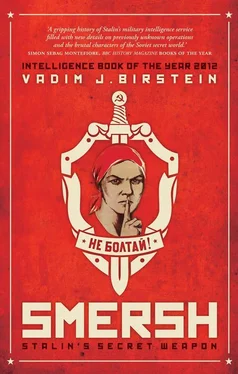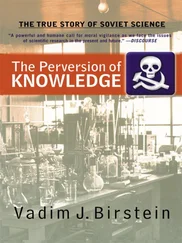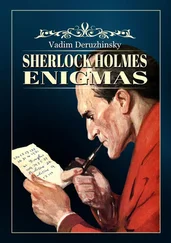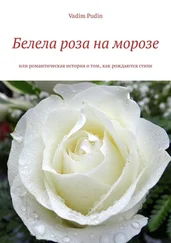The roles of osobisty and smershevtsy were always controversial in Russia because most of the war veterans who had fought at the front line could not forget—or forgive—the brutality of military counterintelligence. The writer Vasil’ Bykov may have given the most powerful descriptions of osobisty in his novels The Trap (1964) and The Dead Do Not Feel Pain (1966). Before The Trap was published, a Soviet censor forced Bykov to change the ending of his story in which a lieutenant who had just escaped from the Germans was shot by an osobist . In the new ending, the lieutenant was sent into an attack after the osobist had threatened to shoot him. The Dead Do Not Feel Pain was banned in the Soviet Union from 1966 till 1982 because of Bykov’s portrayals of cruel commanders, a ruthless osobist , and a brutal chairman of the military tribunal. As functionaries of the Party’s Central Committee indignantly wrote, Bykov depicted the osobist called Sakhno ‘as a villain and a murderer. Sakhno takes justice in his hands and kills soldiers and officers, and shoots the wounded to death.’ 17
Obviously, the Party bureaucrats would have been more comfortable with the glorious ‘truth of generals’ celebrated in the memoirs of high commanders. Later Bykov responded to Marshal Ivan Konev, one such memoirist, who criticized Bykov’s novel on the grounds that the Soviet leader Joseph Stalin had awarded him the highest Order of Lenin for the Kirovograd Operation in January 1944, which Bykov described. Bykov explained: ‘In his [Konev’s] and Stalin’s opinion, this was a successful operation. Possibly, seen from the Kremlin’s perspective, it was. But there was also a different point of view: that of a soldier who was lying on a snowy field covered with blood and trampled down with tank tracks, where our regiment was almost completely destroyed.’ 18
Bykov described his own experience with the OO in A Long Road Home, an autobiographical work published after his death in 2003. He recalled how in 1941, when he was a 17-year-old soldier, an osobist ordered him to be executed as a traitor because he had become separated from his military unit while trying to buy some food (soldiers were not provided with any rations). An aged Red Army private, not an NKVD executioner, fired a shot over Bykov’s head, and he was able to run away. The other unfortunate servicemen detained by the same osobist were shot to death.
But it was not until 2003 that a special exhibition at the Central Military Museum in Moscow revealed for the first time the organizational structure and activities of SMERSH. 19A part of the sixtieth-anniversary celebration of SMERSH’s birth, the exhibition presented a flattering portrait of SMERSH and highlighted its success in fighting German spies. However, the exhibition made little mention of SMERSH’s more sinister activities, such as the vetting camps ( fil’tratsionnye lagerya ) where hundreds of thousands of innocent repatriated Russian POWs, unfairly suspected of treason and espionage, were subjected to brutal interrogations by SMERSH investigators. 20Many of the same exhibits, along with some additions, were presented at the exhibition 90 Years of Military Counterintelligence, which opened in December 2008 at the same museum. 21
The present Russian security service, the FSB ( Federal’naya sluzhba bezopasnosti or Federal Security Service, the main successor of the Soviet KGB that includes the current military counterintelligence), produced both exhibitions in conjunction with the Central Military Museum. The FSB even published a glossy ‘coffee-table’ companion book to the 2003 exhibition that is highly complimentary of Abakumov, although he, as an enforcer of Stalin’s will at the highest level, personally arrested and often participated in brutal interrogations of many innocent people. 22Viktor Stepakov, an FSB-affiliated author, went so far as to raise the question of rehabilitation, i.e., official recognition that Abakumov was not guilty of any crime, in his recent biography of Abakumov. Stepakov cites the opinion of Ivan Krauze, a secret service veteran: ‘Viktor Semyonovich Abakumov was a good man… If during an interrogation he beat somebody up, these were enemies of the people since he did not touch innocent [arrestees]… A monument must be erected to him as an innocent victim killed by the libertarian [Nikita] Khrushchev.’ 23
The controversy continues on the Russian TV. In November 2004, a Russian TV documentary, People’s Commissar of SMERSH: The Fall portrayed Abakumov as a devoted, talented serviceman, inspired by Communist ideals, who was executed on the order of traitors. On May 6, 2009, the Russian government-controlled TV channel Rossiya showed a new ‘documentary’ movie (actually a work of fiction) called To Kill Comrade Stalin , in which Abakumov and SMERSH operatives are shown saving Stalin’s life by arresting a Nazi assassin sent by the German secret services. Contrary to this, on December 30, 2010 the Russian historian Nikolai Svanidze broadcasted his TV documentary Historical Chronicle of 1950. Viktor Abakumov in which he presented Abakumov quite adequately. Soon after this broadcast Svanidze’s TV program was closed.
Many war veterans felt that the osobisty would survive because they were in the barrage detachments placed behind the fighting troops, and would end up creating myths about the war. For instance, a former private described the feeling of the servicemen on the front line: ‘We [soldiers], dressed in cold greatcoats, will perish at the front line, while osobisty in sheepskin coats behind our backs and armed with heavy machine guns, will survive. And later they will tell stories about how they defeated Hitler.’ 24This is exactly what happened.
Recently a number of memoirs written by security veterans who served in SMERSH and military counterintelligence just after the war have become publicly available. Unfortunately, these memoirs provide little information about military counterintelligence history. However, they are a source of details about everyday counterintelligence work, and they also allow the reader to better understand the psychology of these brutal people. Even 65 years after the war the security-service veterans remain mostly staunch Stalinists, extremely anti-Western and anti-American, and they still believe that they made no mistakes in their glorious work of finding traitors within the Red Army.
Here is an example from former SMERSH officer Leonid Ivanov, who wrote in 2009: ‘I consider rightful the decision made by J. Stalin [in 1944] to exile the Crimean Tatars [executed by the NKVD, NKGB (State Security Commissariat) and SMERSH] for their numerous crimes from such an [important] strategic region… as the Crimean Peninsula… The eviction of the Tatars from the Crimea was an act of historic justice. There is no sense in saying that the whole Tatar people in the Crimea were not guilty. And were the Russian people guilty when they were killed and burned alive during the Tatar-Mongolian invasion [in the 13th–15th centuries]?’ 25
Fortunately, material that goes beyond FSB-controlled information has recently become available, enabling me to write this book. In the past ten years, independent Russian archivists and historians from the Alexander Yakovlev International Democracy Foundation and Memorial Society (both in Moscow) have published numerous compilations of original documents released from important archives, including the Presidential Archive of the Russian Federation (APRF), the FSB Central Archive, the State Archive of the Russian Federation (GARF), the Russian State Military Archive (RGVA), and a few others, all located in Moscow. Perhaps most important, the Memorial Society, which is devoted to the commemoration of Stalin’s victims, has published a series of books in Russian on the history and structure of the security services and the biographies of many of their key personnel. When I cite documents from these books, I give the number of the document in the book, while all archival details are available in the book. Additionally, many important archival documents were published in the Russian press. 26
Читать дальше












